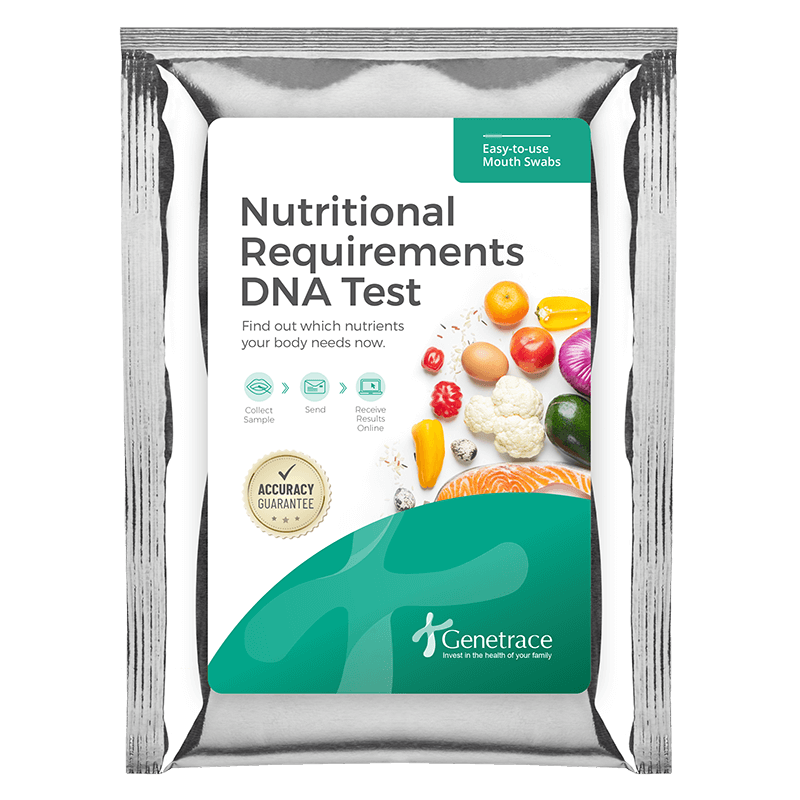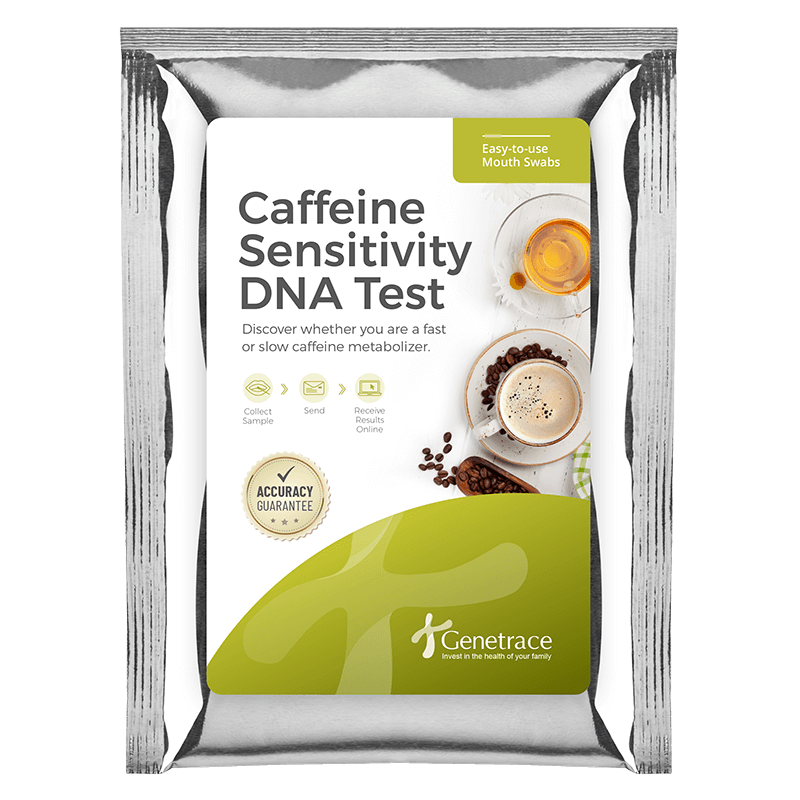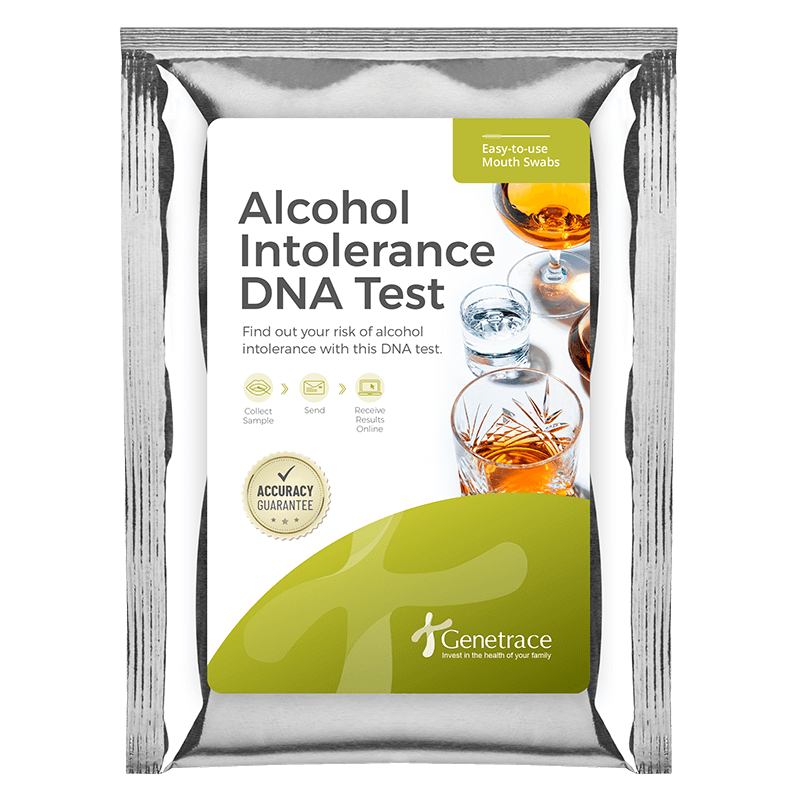Lactose Intolerance DNA Test
$149.00
Could your digestive issues be due to lactose intolerance? Almost 65% of people around the world are lactose intolerant to some degree. Find out if you may be one of them with the DNA Lactose Intolerance test.
- Free shipping both ways
- Easy-to-use cheek swabs
- AABB, ISO17025 & CLIA accredited lab
Kit includes all lab fees and free return shipping to the lab.
Receive secure, confidential results through your online dashboard.
All tests performed in our AABB, ISO 17025 & CLIA accredited laboratory.
What is Lactose Intolerance?
People who are lactose intolerant cannot digest and absorb the sugar lactose, present in dairy products. This causes digestive symptoms like gas, bloating and diarrhoea when milk and other dairy products are consumed.
What Causes Lactose Intolerance?
The milk sugar lactose is broken down by the enzyme lactase and people who are lactose intolerant make low levels of this enzyme. When the activity of lactase is low, lactose is not properly broken down or absorbed. Undigested lactose builds up in the large intestine allowing for the growth of gas producing gut bacteria, which contributes to the symptoms of lactose intolerance such as bloating bloating, flatulence, and abdominal pain.
What is tested?
Lactase persistence, the ability to digest milk products, is a genetic adaptation that can be inherited. This DNA test detects genetic variants in the MCM6 gene that enables lactase persistence. People who inherit these variants continue to produce lactase well into adulthood and are unlikely to suffer from lactose intolerance.
How common is lactose intolerance?
Your likelihood of developing lactose intolerance depends on your ethnicity. Approximately 90% of Asian-Americans, 79% of African Americans and 95% to 100% of Native Americans are lactose intolerant. Only about 25% of Caucasians, and 5% of people of Norther European descent are lactose intolerant.
Symptoms of lactose intolerance
• Bloating
• Flatulence
• Diarrhea
• Nausea
• Vomiting
• Abdominal pain or cramps
• Gurgling and rumbling sounds from the abdomen
Summary
What is Lactose Intolerance?
People who are lactose intolerant cannot digest and absorb the sugar lactose, present in dairy products. This causes digestive symptoms like gas, bloating and diarrhoea when milk and other dairy products are consumed.
What Causes Lactose Intolerance?
The milk sugar lactose is broken down by the enzyme lactase and people who are lactose intolerant make low levels of this enzyme. When the activity of lactase is low, lactose is not properly broken down or absorbed. Undigested lactose builds up in the large intestine allowing for the growth of gas producing gut bacteria, which contributes to the symptoms of lactose intolerance such as bloating bloating, flatulence, and abdominal pain.
What's Measured?
What is tested?
Lactase persistence, the ability to digest milk products, is a genetic adaptation that can be inherited. This DNA test detects genetic variants in the MCM6 gene that enables lactase persistence. People who inherit these variants continue to produce lactase well into adulthood and are unlikely to suffer from lactose intolerance.
Technical Information
How common is lactose intolerance?
Your likelihood of developing lactose intolerance depends on your ethnicity. Approximately 90% of Asian-Americans, 79% of African Americans and 95% to 100% of Native Americans are lactose intolerant. Only about 25% of Caucasians, and 5% of people of Norther European descent are lactose intolerant.
Symptoms of lactose intolerance
• Bloating
• Flatulence
• Diarrhea
• Nausea
• Vomiting
• Abdominal pain or cramps
• Gurgling and rumbling sounds from the abdomen
Explore your DNA Story
Embark on a journey of self-discovery with our at-home DNA tests, powered by cutting-edge science made accessible for all.
Simple Sample Collection
Secure Online Results
Accredited Laboratory
Discreet & Confidential
How it works
Purchase your kit
Collect DNA Sample
Mail samples to the lab
Receive your results
FAQ's
Here are the answers to the most frequently asked questions about this test.






